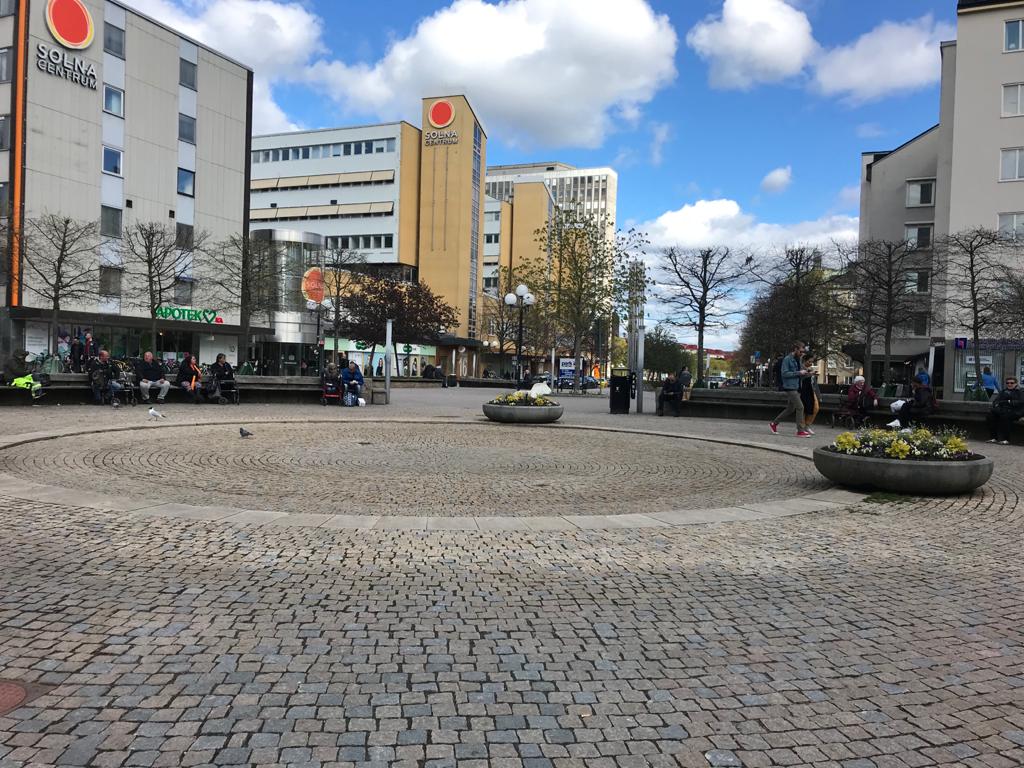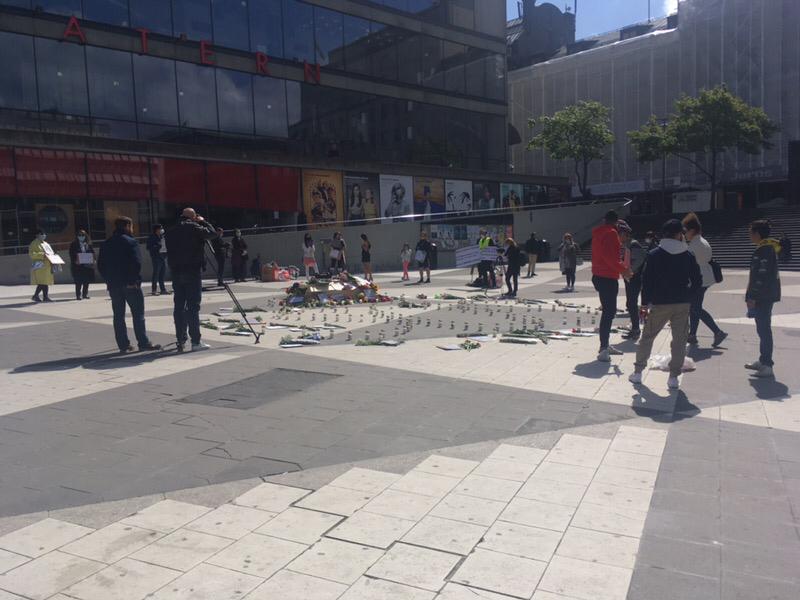The last three months have been steered by COVID 19 and our reactions to it. It feels as if all the conversations we had before COVID 19 have to be temporarily shelved and one does not quite know how the world will look when this is over. In truth, what COVID has done is to lay bare many of the issues that we were talking about before it came and changed our world. Groups that are already in precarious situations in one way or another stand out as being the most affected by the virus and different State responses towards their populations is one of those. In the US, Black Americans are disproportionately hard hit by the virus, in Europe the old constitute more than half of the population dying from the virus. In India, migrant labourers are dying from hunger. This pandemic is – for our experts and political leaders – the trolley problem of utilitarianism.

My own experience of this virus has been rather interesting and I would like to share them and my thoughts with the readers. None of these thoughts are complete, I find it hard to wrap my head around this virus, because it has become a flashlight, you just have to turn it to light up all the issues we have been talking about. Of course, none of us know which strategy is the right one and which one is not. Maybe in a few decades we will start to understand the deaths that resulted from different governments’ responses. In the meantime, it feels like our structural issues have come under the microscope and we now see how precarious life is for the many who keep our societies running.
I have been given an extraordinary chance to experience this pandemic in two exceptional countries – Taiwan and Sweden. Taiwan for its swift and immediate response, Sweden for its hotly debated unrestrictive approach. Back home, my family is split in two cities in India – Shillong and Bangalore.
When we landed in Taiwan in mid-December 2019, our bags were checked for meat and food. We later learned from our friends there that China sends adulterated food into Taiwan. From the get go, we felt that we had landed into an alert country, constantly being hounded by its giant neighbour. In January, the Democratic Progressive Party (DPP) won the Taiwanese elections. We attended the DPP’s rally that had around 510, 000 people in attendance. We met people who flew in from Hong Kong, Singapore and expats who made a short trip back from all over the world, to vote in the elections. The feeling was exhilarating. The commitment stark. When COVID hit the news soon after, Taiwan reacted both from the bottom and the top. There was a sense of trust in the government but also a responsibility that citizens took upon themselves. As early as 1st January, different governmental institutions were working together to stop the spread of the disease. In public, everyone wore masks. Every café and restaurant had a hand sanitizer. Every government building – from museums, art galleries and government run stores – took your temperature and sprayed a hand sanitizer. Despite having had around 2000 people from Wuhan in January and thousands flying in from China during the Chinese New Year, the Taiwanese government succeeded in containing the outbreak. The result was that life went on, close to normal. We worried at times, but we met friends, travelled to busy tourist spots, went to restaurants and bars, hung out with friends in their cramped living rooms, ate at busy night markets and used public transport every day. Apart from the news and the announcements on public transport telling people to wear a mask if they have a cold, you couldn’t tell there was a viral infection that would soon be called a pandemic. In all this, a critical factor of course, is that Taiwan has one of the best health care systems in the world. No doubt its relationship to China, its experience of SARS, its recent shift from an authoritarian state and its exclusion from the WHO have played a role in its extraordinary swift and efficient containment of the virus. The rest of the world has not been as well prepared. Neither was Sweden, where I currently reside along with my husband.

While leaving Taiwan to come back to our jobs in Sweden, we felt nervous about contracting COVID 19 for the first time since it hit the news. A week before our departure, my husband called the Swedish consulate, asking if we should quarantine ourselves. He was asked to follow the guidelines given by the Folkhälsomyndighet (FHM) i.e. the Institute of Public Health in Sweden. There was nothing about self-quarantine in the website. That got us worried. We were aware of the problems that the Swedish health care was undergoing for a few years. Nurses had gone on strike in the past two summers because of the working conditions. The paradise of social welfare is undergoing major cracks, with lowered taxes for the rich and rising class inequality. Before the coronavirus, much of the news was focused on the failing social welfare state and the role of immigrants in its undoing. The Swedish Democrats, a rising right wing party was taking over much of the news with its anti-immigrant rhetoric. How was this virus going to unfold in Sweden? Our journey from ‘very alert and prepared’ to ‘definitely not ready’ started with our journey itself.
At the International airport in Taipei, our palms were sprayed with hand sanitisers at every corner. Everyone had a mask. Our neighbours donated masks to us for the journey (Taiwan was rationing surgical masks only to its residents). As soon as we arrived at Dubai and later at Arlanda, we realized how unprepared the rest of the world seemed. There were no hand sanitisers anywhere, no one was checking travelers’ temperatures. People coughed into their hands or without covering their mouths at all.
When we landed, I self-quarantined and worked from home for a week against the advice of the FHM. In the early stages of COVID, the representatives of FHM publicly said that they did not think the disease would be a problem in Sweden. Since then views have altered. As of today, the 23rd of May, over 3900 people have died in Sweden, there are at least 33,000 confirmed cases in the country. Like many countries, Sweden only tests people who are sick enough, though they are now talking of mass testing. Sweden’s hardest hit are eldercare facilities and immigrant suburbs. Elderly care homes, divided into apartments for the elderly and nursing homes for the elderly do not always have the same people working in them. Substitutes work when necessary and an elderly person can have 10 different people assisting and caring for them in a week. In addition, not much was done in terms of testing people working in this sector, neither were they given PPEs in the early stages. Even now, my contacts working in the elderly care sector tell me that not every care home uses masks while caring for the old. With regards to immigrants, they live in intergenerational houses, they work in exposed sectors – bus drivers, elderly care, small restaurants, preschools – sectors where you cannot work from home.

Photo by: Karin Ahlberg
Preschools and schools are open, so are restaurants and bars and they are full of people, especially now when winter and the darkness have gone. People belonging to risk groups working in the essential sectors are expected to keep working unless they fall sick. So far it looks like Sweden is trying to build herd immunity by letting its citizens and residents get infected without the health care system crumbling. Then again, how are people in risk groups working in essential sectors supposed to keep safe? If they fall sick, will there be enough medical support and care? While intensive care beds have been increased, Sweden’s healthcare was already in a crisis, with nurses going on strike since last year, asking for better work conditions and better pay. Right now, the health care has incorporated people laid off from the Swedish Airlines, SAS, and even put an ad asking McDonald staff to help fight COVID. Doctors are reporting that they are being forced to turn away patients from the intensive care unit, who would have otherwise been admitted and survived the disease. New regulations have come into force making it harder than usual for people to qualify for intensive care.
In Taiwan and Sweden, the similarities, for very different reasons is that life seems to go on as usual, the battlefield seemingly far away from daily life, only to intrude through the morning news and press conferences held by public officials. In India, daily life is on hold. Paused. For many it’s been sheer murder. For those who can afford life to be on pause or where governments have showed a potential for state building, pausing can hold out for a while longer. For most people in India, the fight is about starvation and being stranded. Perhaps the lockdown saved hundreds of thousands from dying of COVID 19, but many have already died and are dying because of sheer neglect and because the population worst affected by the lockdown is not deemed important enough to be provided with essential support.
In the HBO show ‘Watchmen’ based on a comic series by Alan Moore, Adrian Veidt launched a giant squid in New York, killing millions but saved the world from a nuclear warfare. He eventually gets arrested despite saving the world twice (the second time, he launches frozen baby squids in Tulsa, to save the world from a narcissist who was about to absorb Dr. Manhattan’s powers). In our world, the Adrian Veidts that make decisions to let some die will not likely face many repercussions, and more worrying, we will probably find ways to justify the sacrifices we are making.
Be First to Comment